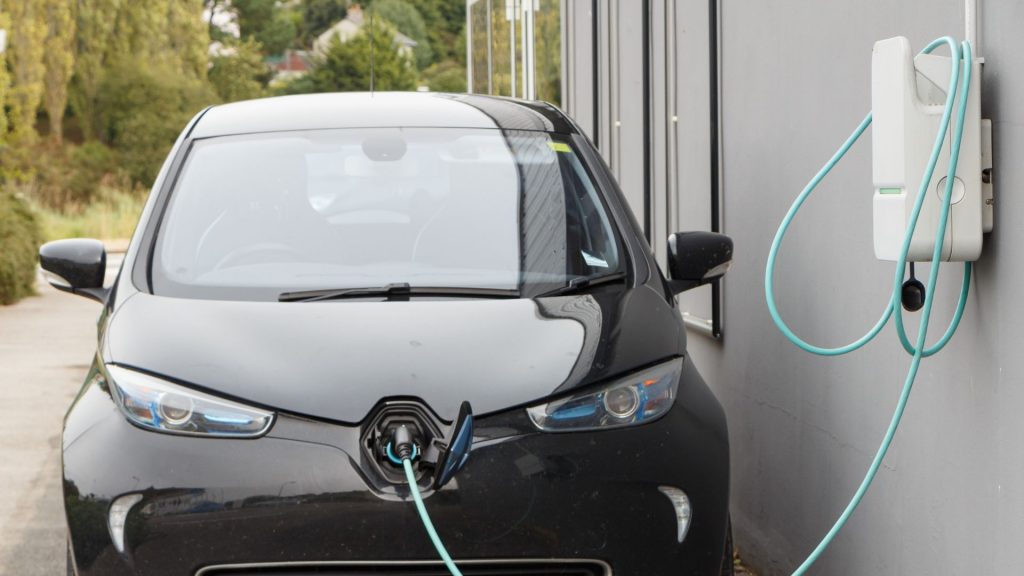Are you wondering if home charging stations for electric vehicles are safe? Well, the answer is a resounding yes! In fact, they are even safer than using a regular outlet.
When it comes to charging your EV at home, opting for a dedicated charger is essential for optimal safety. These chargers are designed to handle higher energy loads and come equipped with weatherproof and impact-resistant features. Plus, they have built-in safety mechanisms to protect against potential hazards.
So, let’s dive into the details of why home charging stations are the safest option for your EV.
Key Takeaways
– EV home charging stations are safer than using a regular outlet for charging electric vehicles.
– Home charging stations are designed to handle high loads of energy safely and have safety mechanisms built into them.
– Charging without a dedicated home charger is not optimal or safe, as it can strain the home’s electrical circuit and pose fire hazards.
– Extension cords are often used for EV charging but can be unsafe, as they are not weatherproof and lack protection mechanisms.
How safe are EV Home Charging Stations
Home charging stations are designed to handle high loads safely, so you can feel confident in their safety when charging your EV at home. Safety precautions for EV home charging stations include evaluating the reliability of the station and understanding common misconceptions about their safety.
When evaluating the reliability of a home charging station, it is important to consider its safety features. Different models offer varying levels of protection, such as built-in surge protection, ground fault circuit interrupters (GFCI), and overcurrent protection. Comparing these features can help you choose a station that meets your safety needs.
One common misconception about the safety of home charging stations is that they pose a higher risk of electrical fires compared to using a regular outlet. However, this is not true. Home chargers are specifically designed to handle the energy-intensive process of EV charging and have safety mechanisms built into them.
To maintain the safety of your home charging station, there are a few tips you should follow. First, regularly inspect the station for any signs of damage or wear. Additionally, make sure to use properly rated extension cords if necessary and avoid overloading circuits by running other high-power appliances simultaneously.
Key Safety Features of Home Charging Stations
To ensure your safety, it is important to understand the key features that make EV home chargers reliable and secure. There are common misconceptions about home charging stations, but with proper knowledge, you can take steps to ensure their safety.
One of the benefits of using a dedicated home charger for EV charging is that they are designed to handle high loads of energy safely. They have safety mechanisms built into them to protect against power overload and overheating. Home chargers are also weatherproof and impact-proof, making them durable in various conditions.
When exploring the safety certifications of home charging stations, look for international certifications such as UL or CE. These certifications ensure that the chargers have undergone rigorous testing and meet stringent safety standards.
To choose the right home charging station for your needs, consider factors such as power output, connectivity features, and compatibility with your vehicle. Ensure that the charger you select has sufficient power capacity to handle your vehicle’s charging requirements.
Potential Dangers of EV Charging Without a Home Charger
If you don’t have a dedicated home charger, it can be unsafe to charge your EV without the proper equipment. Charging an Electric Vehicle (EV) without a home charger poses potential hazards and risks. Without a dedicated charger, you are more likely to encounter electrical dangers and compromise your safety. It is essential to take safety precautions when charging your EV at home to avoid these risks.
One of the main dangers of charging without a home charger is the intensity of the current involved in EV charging. EVs draw much more power than common household appliances, which can strain the home’s electrical circuit and pose a fire hazard. Power overload can cause circuit breakers to fail or wiring to overheat.
Moreover, using unsuitable extension cords for EV charging can create additional hazards and fire risks. Extension cords not designed for high-power loads may overheat or fail under the heavy load required for EV charging. Additionally, they often lack protection mechanisms like dedicated circuit breakers.
To ensure safety during EV charging, it is crucial to use a dedicated home charger. Home chargers are specifically designed to handle high loads safely and come with built-in safety mechanisms. They are weatherproof, impact-proof, and undergo rigorous testing and certification for safety.
Understanding the Safety Mechanisms of Home Charging Stations
Understanding how home chargers work can help ensure the safety of EV charging. Common safety issues with home charging stations include the potential for power overload and circuit failures. To prevent these issues, it is important to explore the safety certifications for home charging stations. Look for certifications like UL or CE, which ensure that the charger has undergone rigorous testing and meets international safety standards.
Another aspect of ensuring safe home charging is understanding the role of software in the process. Home chargers often come with custom-built software that allows for smart charging features and protects data privacy and security. This software helps regulate the flow of electricity, preventing power overload and other potential hazards.
To further prevent power overload and circuit failures, it is crucial to avoid using unsuitable extension cords. These cords may not be rated to carry the power load required for EV charging and lack protection mechanisms like dedicated circuit breakers. Instead, use a dedicated home charger that is designed to handle high loads safely.
Lastly, consider the impact of weather conditions on the safety of home charging stations. Home chargers are designed to be weatherproof and can withstand rain, snow, wind, hail, and sun. This ensures their durability and longevity while maintaining safe operation.
Ensuring Safe EV Charging at Home
Using a dedicated home charger for EVs is essential in order to ensure safe and efficient charging at home. When it comes to EV home charging, there are common hazards that need to be addressed to ensure electrical safety.
One of the main concerns is power overload. EVs draw much more power than common household appliances, which can strain the home’s electrical circuit and pose a fire hazard. It is important to use a dedicated home charger that can process higher loads of energy safely.
Another aspect of safety is weatherproofing in home charging stations. These chargers are designed to be weather- and impact-proof, capable of withstanding rain, snow, wind, hail, and sun. This ensures their durability and longevity.
In addition to physical safety features, it is crucial to consider data privacy in home charging systems. Home chargers with connectivity functionalities offer smart charging features but also protect privacy and security by implementing custom-built software.
Understanding the impact of power overload is also important for safe EV charging at home. Power overload can overwhelm the home’s electrical circuit, causing circuit breakers to fail or wiring to overheat. It is vital not only for user safety but also for preserving the lifespan of both the vehicle and the charger itself.
The Importance of Using Proper Equipment for Home Charging Stations
Using the appropriate equipment for EV home charging is crucial to ensure both safety and efficiency. Here are three key factors to consider:
1. Importance of professional installation: It is essential to have your home charger installed by a qualified electrician who understands the specific requirements of EV charging. They will ensure that the charger is correctly wired, grounded, and protected by appropriate circuit breakers or fuses. Professional installation also ensures compliance with electrical codes and standards, reducing the risk of electrical hazards.
2. Proper maintenance for home chargers: Regular maintenance is necessary to keep your home charger in optimal condition. This includes cleaning the charging unit, inspecting cables for wear or damage, checking connectors for tightness, and verifying that all safety features are functioning correctly. Following manufacturer guidelines and scheduling routine check-ups can help prevent potential issues from arising.
3. Ensuring correct electrical wiring: The right electrical wiring is crucial for safe and efficient charging. It should be capable of handling the load required by your EV without overheating or causing power disruptions. Upgrading your electrical system may be necessary if it does not meet the demands of EV charging. An electrician can assess your current wiring setup and make any necessary adjustments or upgrades.
In addition to these considerations, choosing the right charging cable that matches your vehicle’s specifications is vital for safe operation. Regular safety inspections will help identify any potential hazards before they become more significant problems. By prioritizing professional installation, proper maintenance, correct electrical wiring, choosing the right charging cable, and regular safety inspections, you can ensure a safe and efficient EV home charging experience.
Final thoughts
In conclusion, using a home charging station for your electric vehicle is not only convenient but also safe. These chargers are specifically built to handle the high energy loads required for EV charging, with their robust design and smart features.
Interestingly, studies have shown that EV drivers who charge at home are up to 90% less likely to experience any safety-related incidents compared to those who rely on regular outlets or other makeshift solutions.
So, investing in a dedicated home charger is not just about convenience but also about ensuring the safety of yourself, your vehicle, and your home.
Need more help?
If you would like to find out more information about all of our CCTV services available, or have a question about your existing CCTV system you can send us a message or
Give us a call today to find out more 0191 442 2723

